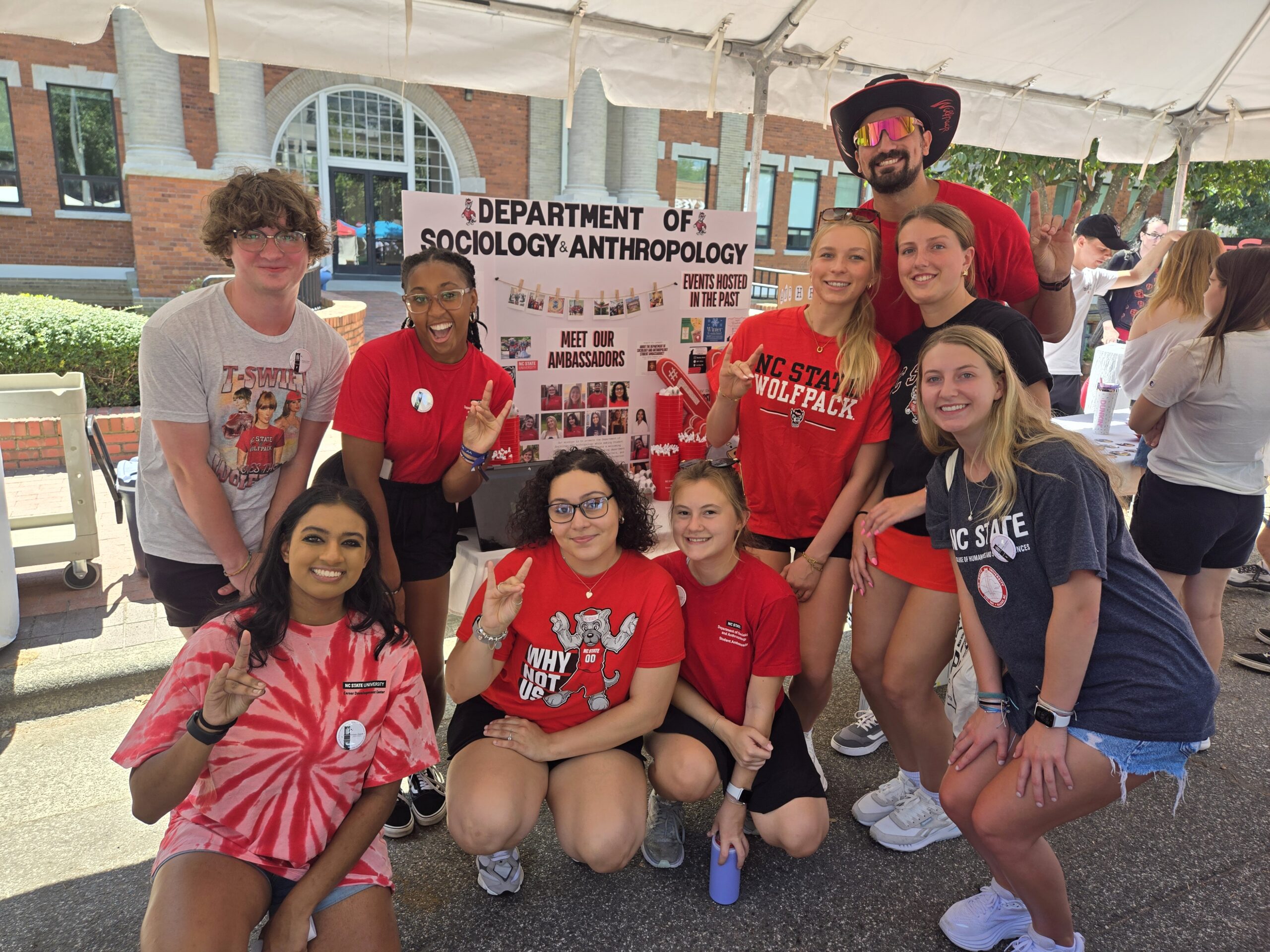Career Paths and Experiences of Sociology Majors

If you are a sociology major, you have probably had the common experience of telling someone your major and then promptly being asked, “What’s sociology?” or “What do you want to do with that?” Many people, including sociology majors, are unaware of the wide variety of career options available with a sociology degree. There are also many different topics to study within sociology.
Jim Yocom, assistant teaching professor of sociology and academic advisor at NC State, shed light onto the career options available for sociology majors. He explained that on one end, there is the criminal justice system and law enforcement. This includes people who work in law enforcement, investigative work, lawyers and mediators. These groups hone in on inequalities and advocate for defendants and consumers.

Yocom explained the next common career path for sociology majors was working inside non-profits or local government. This involves data collection, data analysis and survey polling and often draws on sociological methods.
The third common career path is working for the CDC or health departments. This has been a growing area for sociologists within the last ten years due to inequalities and disparities within public health. Most of these career paths involve further education, but Yocom said that many graduates find jobs within the research triangle area.
Yocom explained that sociologists often are either qualitative or quantitative, and it is important to hone your skills and advocate for yourself as one of these. He recommends two classes at NC State that will help to build skills and techniques that can be used on a resume: SOC 320: survey design and SOC 429: quantitative data analysis. These classes will help with marketing yourself as a qualitative or quantitative researcher to employers in the future.
Alex Soto, a senior sociology and anthropology major and student ambassador, shared some of his experiences within sociology and gave some helpful advice for those interested in sociology. Alex explained why he chose to be a sociology and anthropology major. “Originally, I was a computer and electrical engineering student,” he said. “I was good at it, earned awards and scholarships for it, but later I realized that I liked to interact and study people more than machines. It always brought me joy to learn about different cultures across the world, their history and how different and unique they are from each other.”

Alex went on to say that he wants to pursue a career in federal law enforcement as a crime scene analyst, forensic anthropologist, victim relations officer or any other positions that will allow him to help people with direct contact. He emphasized the versatility of a sociology degree and encouraged students, regardless of major, to take a sociology class for perspective on how the world around us works.
Alex also recommended some of his favorite sociology classes. “One of my favorite sociology classes was about racial and ethnic relations. This discussion-based class allowed me to understand how different power structures worked in contemporary society and how these directly interact with different communities, specifically marginalized communities,” he said. “Currently, I am also taking a class on community and crime and it is teaching me how crime directly affects different communities, the reason why crimes happen more in some places than others and how power structures make it harder or easier for crime to happen. These two classes have positively impacted the way I think about society, crime and race.”
Alex also explained what a positive experience he has had with CHASS professors and the department here at NC State. He explained how caring and supportive they were, both inside and outside of the classroom.
Within sociology, there are numerous career opportunities and areas of study. Sociological topics and skill sets are applicable to almost every type of career option. If you are interested in sociology, consider taking some classes and gathering skills that can be used on a resume for employers in the future.

This article is by Katie Call, a Department of Sociology and Anthropology student ambassador majoring in sociology.
- Categories:


